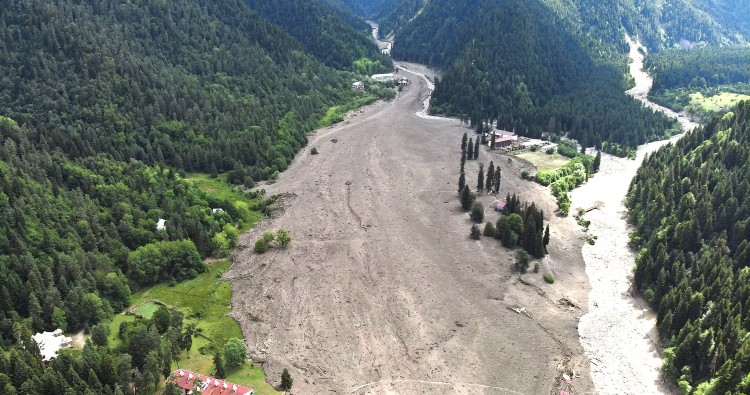Five geological, hydrological processes converged during disaster in Georgia’s west - National Environmental Agency

The body said that Bubis-Tskali, the river stream, located near the disaster area, was not characterised by raging mountain torrents and there had been no large-scale mudflows in the area, adding the Agency was usually giving information on the danger of landslides in the relevant locations in their annual geological bulletin. Photo via Roads Department of Georgia
The National Environmental Agency of Georgia on Saturday said five natural geological and hydrological processes had converged and led to a landslide in western Georgia’s Shovi resort on Thursday, killing at least 12 people.
The Agency explained that in this particular case, the intense melting of the Buba and Tbilisi glaciers and the subsequent sediments had brought the hard deposits in the valley into dynamic, activating erosion and landslide processes, which later turned into the raging mudflow.
The body said that Bubis-Tskali, the river stream, located near the disaster area, was not characterised by raging mountain torrents and there had been no large-scale mudflows in the area, adding the Agency was usually giving information on the danger of landslides in the relevant locations in their annual geological bulletin.
Specialists of the Agency are at the disaster area, including geologists and hydrologists to study the developed processes in Shovi resort and carry out instrumental monitoring.
Georgian Parliament Speaker Shalva Papuashvili recently said the geologists working at the site would try to find answers to the cause of the large-scale natural disaster in Shovi "as soon as possible", noting the public and families of missing persons were "eager" to get the answers.
 Tweet
Tweet  Share
Share